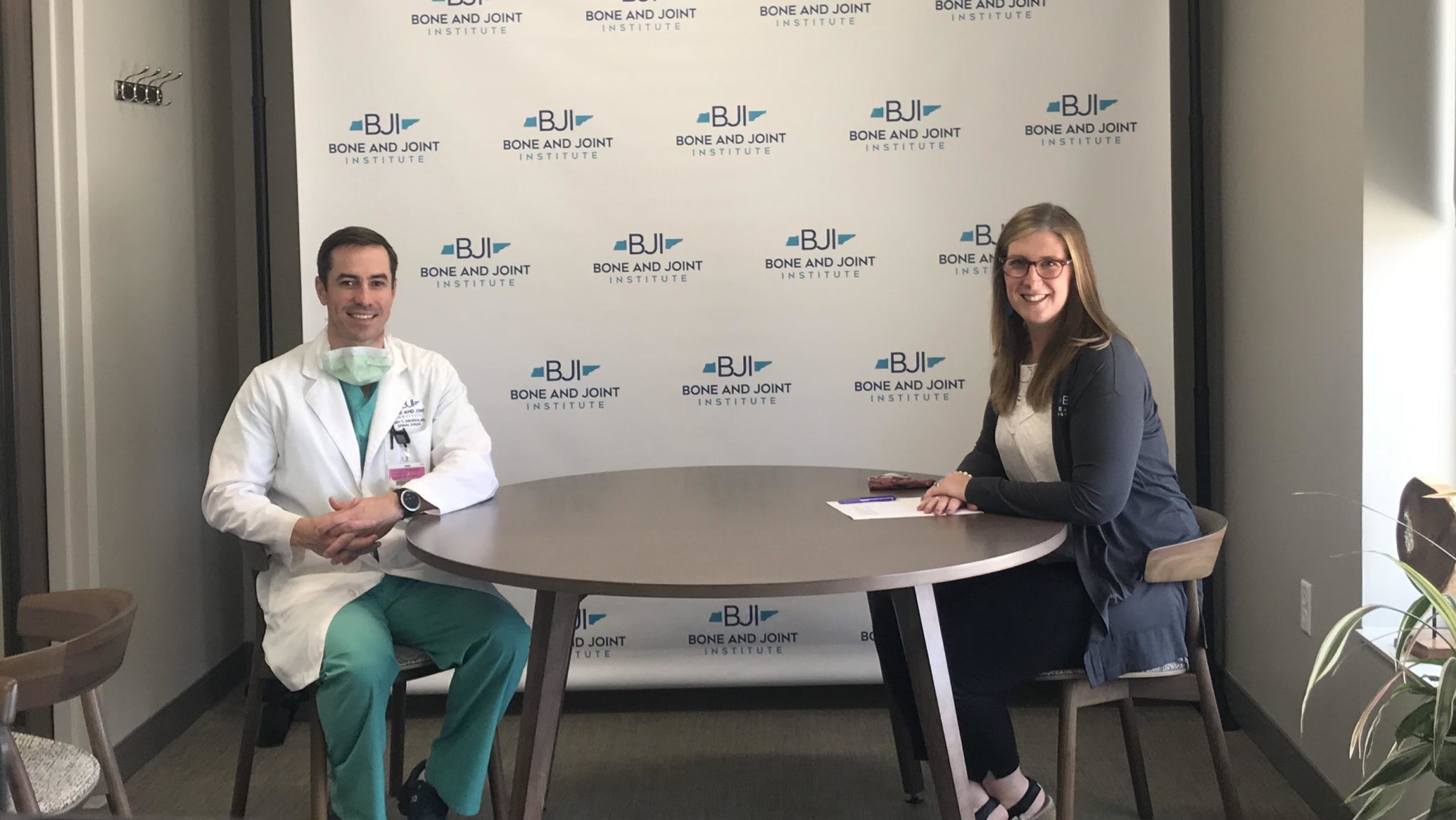15 Oct FB Live: Outpatient Spine Surgery with Casey Davidson, M.D.

Q: Could you give a bit of detail on the spine program at the Bone and Joint Institute of Tennessee?
A: There are three spine surgeons here at the Bone and Joint Institute, along with a plethora of surgeons of different sub-specialties within orthopaedics. From a spine standpoint, we have a very broad capacity of what we’re able to do from a surgical standpoint and from a non-operative standpoint as well. We have a non-operative spine doctor, Dr. Zachary Kalb, who deals with spinal injections and some of our other non-operative procedures. From a surgical standpoint, we do the predominance of our surgeries over at Williamson Medical Center, and all of our inpatient surgeries are done there. We’ve been transitioning more recently into doing outpatient surgery at the Bone and Joint Surgery Center downstairs, which allows us to use some newer techniques and do some procedures that were once thought to require inpatient hospitalization, and now can be done on an outpatient basis.
Q: Can you explain what spine surgeries can be performed in an outpatient setting?
A: Right now we’re being a little bit more conservative in doing surgeries that are smaller, some more minimally invasive surgeries – lumbar microdiscectomies or disc herniations in the lower back. We’re also doing simple decompressions in the lower back or spine, where we’re taking pressure off of any nerves that are being pinched, either by osteophytes, bone spurs, cysts, or a pathology that’s pushing on the nerves. We’re also beginning to do some cervical spine or neck surgeries, and anterior cervical fusion versus an anterior cervical total disc replacement, which are some of the things which will be coming in the next couple of weeks.
Q: What is the advantage of spinal surgery in an outpatient setting?
A: There are a number of different advantages. Number one, efficiency – at the Surgery Center here, we have a number of ORs and are able to run a tight ship and run efficiently and get surgeries done in a very timely manner. It takes almost no time for the patient to get into the Surgery Center – they walk in the front door, check in, and then they’re in the preoperative area. Then they can get in and out within a couple of hours, which is pretty significantly faster than doing it in the hospital. From a patient standpoint, being able to get in and out and do an outpatient surgery and have a lumbar surgery or a neck surgery and be home by lunch that same day is phenomenal. The quality is top notch – the facilities, if you’ve seen any of the videos or if you’ve been here in person, are magnificent. We’re really privileged and excited to now be using them to the fullest extent.
Q: Can you describe the advanced technology that is used in the outpatient setting?
A: There are a couple of things that we’re doing. A large portion of what we’re doing is from an anesthesia standpoint. Dr. Katherine Dobie and Dr. Stephen Harvey are part of a group of anesthesiologists that help head our anesthesia department. They really do everything they can to maximize patient care and minimize the amount of narcotics that we’re using or having the patients take. From a surgical standpoint, we’re doing a number of minimally invasive, or less invasive, techniques. You can access the surgical spine or neck, or the lumbar spine, using surgical microscopes and different techniques to minimize damage to the muscles, joints, and bone. We try to disrupt the area around the nerves as little as possible. Those techniques allow us to do surgeries on an outpatient basis.
Q: Are there certain criteria for outpatient spine surgery?
A: There are some things that we look at and a certain subset of the population would not be a really good candidate for the Surgery Center – if you have a number of medical comorbidities or illnesses that can put you at risk for having anesthetic complications, or needing to stay in the hospital for further surveillance – those would preclude you from being able to come down and have surgery in the Surgery Center. But, we’re still just across the parking lot from Williamson Medical Center, so we have a little bit of a safety blanket if something were to happen from that standpoint. The good news is that the procedures that we’re doing over here have been proven safe by both orthopaedic and spine literature, and even patients who have a few medical issues can be treated downstairs. We basically have a combination of the surgeon, primary care doctor, patient’s cardiologist, or other medical treatment teams, along with the anesthesiologist, making these decisions as to who would be a good candidate.
Q: How does this improve the patient experience?
A: I think it’s a lot less stressful overall. I did two cases this morning and both patients were comfortable in the preoperative area. They had a streamlined check in, a low stress environment coming in, there’s not as much hustle and bustle or people coming in and out. Both were thankful and really had a great experience, and they have already gone home, well before lunch. Both are feeling significantly better. I think that has been consistent with all the cases that I’ve done. Going into the hospital is daunting – having all the hustle and bustle can really increase your stress levels. It is a much more laid back approach to outpatient surgery and surgery in general, that allows patients to have less stressful, more efficient, high quality care.
